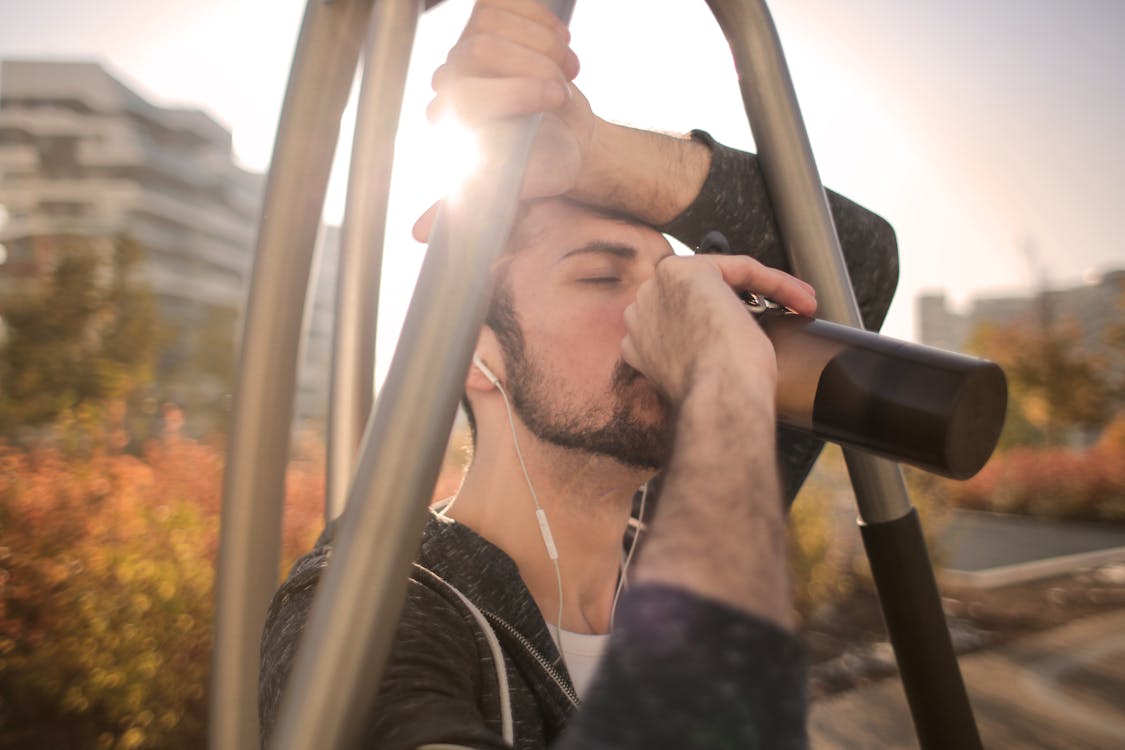Recommended daily intake of water
The recommended daily water intake is generally about 8 glasses per day for adults, or approximately 2 liters (64 ounces). This is often referred to as the '8x8 rule.' However, your intake requirements may increase depending on factors such as age, gender, weight, activity level, climate, and overall health. For example, people living in hot or humid climates or athletes need to drink more water to stay hydrated.
Some health authorities suggest a total daily water intake of about 3.7 liters (125 ounces) for men and about 2.7 liters (91 ounces) for women, including fluids from all beverages and foods. These recommendations include liquids from all sources, not just plain water. In addition to water, foods with high water content, such as fruits and vegetables, also contribute to overall hydration.

Can I drink water before or after a meal?
We usually think that drinking water before or after meals hinders digestion, but this has not been scientifically proven.
Drink water before meals: Some people believe that drinking water before meals can dilute stomach acid and potentially damage the digestive system. However, stomach acid is highly concentrated and is not affected by water intake. In fact, drinking water before a meal can help control your appetite and can also help keep you hydrated.
Drink water after meals: Likewise, drinking water after meals is thought to dilute digestive juices and enzymes, slowing down digestion. Although it is true that excessive fluid intake immediately after a meal may temporarily dilute stomach acid and enzymes, there is no clear evidence.
Overall, moderate water intake before, during, and after meals does not have a significant negative effect on digestion for most people. It's important to listen to your body's signals and adjust your water intake based on your personal comfort and preferences.
Symptoms of dehydration (lack of water)
Let's take a closer look at the various symptoms and physiological changes in the body when dehydration occurs due to insufficient water intake.
- Thirst: Thirst is the body's first sign of dehydration. When fluid levels fall below a certain threshold, the brain triggers thirst to encourage water intake.
- Dizziness: A decrease in body fluid volume can reduce blood pressure, causing dizziness.
- Dark urine: When your body becomes dehydrated, your urine becomes darker because your kidneys conserve water by producing concentrated urine.
- Reduced urination: When you are dehydrated, your body urinates less to retain water.
- Dry skin: Loss of moisture can cause skin to become dry and flaky, and lips to become chapped.
- Muscle Cramps: Dehydration can cause muscle cramps due to electrolyte imbalance and reduced blood flow.
- Decreased cognitive function: Being underhydrated can lead to decreased concentration, memory, and cognitive function.
- Fatigue and weakness: Dehydration can cause fatigue and weakness because reduced circulation means cells receive less oxygen and nutrients.
- Headaches: Dehydration can cause headaches by reducing blood flow and oxygen reaching the brain. Blood vessels in the brain may constrict to conserve fluid.
- Electrolyte imbalance: Prolonged dehydration can lead to electrolyte imbalances, especially sodium and potassium, which are essential for nerve and muscle function.

Correlation between excessive water intake and kidneys
Have you ever heard that drinking a lot of water in the long term is not good because it puts a strain on your kidneys? In conclusion, for people without health problems, drinking large amounts of water over a long period of time is generally not harmful to the kidneys.
In fact, staying well hydrated is important for maintaining kidney health and proper function.
The kidneys play an important role in filtering waste and excess fluid from the blood and producing urine. Adequate hydration supports kidney function by ensuring there is enough fluid to facilitate this filtration process.
However, in theory, overhydration could potentially put strain on your kidneys. Hyperhydration, also known as water intoxication or hyponatremia, occurs when sodium levels in the body become too diluted due to excessive water intake. This can lead to an imbalance in electrolytes, including sodium, which is essential for proper kidney function.
In most cases, the kidneys are able to regulate water balance efficiently even when water intake increases. However, extreme cases of overhydration, such as consuming too much water in a short period of time, can put undue stress on the kidneys, potentially leading to water intoxication.
If you have any concerns about your fluid intake or kidney health, it is recommended that you consult with your healthcare provider for personalized guidance and recommendations.
Thank you :)